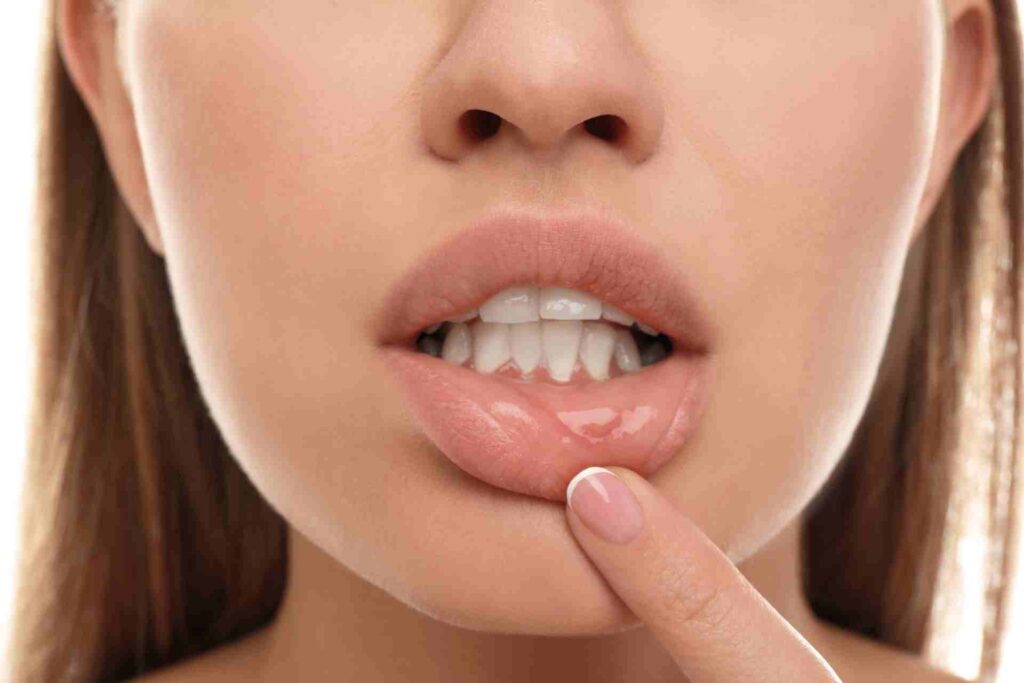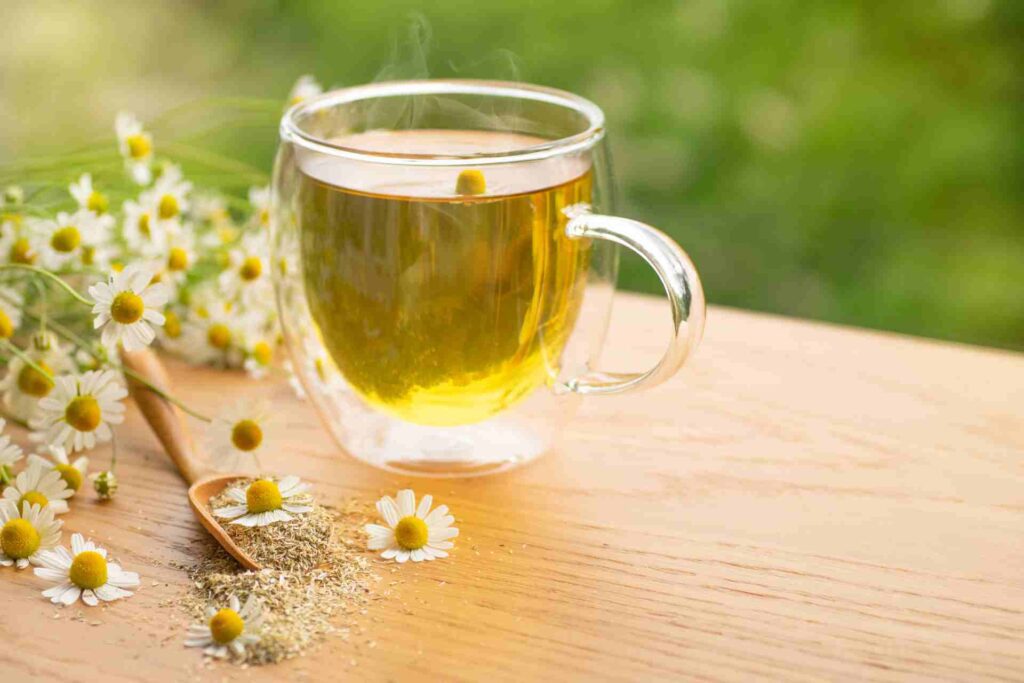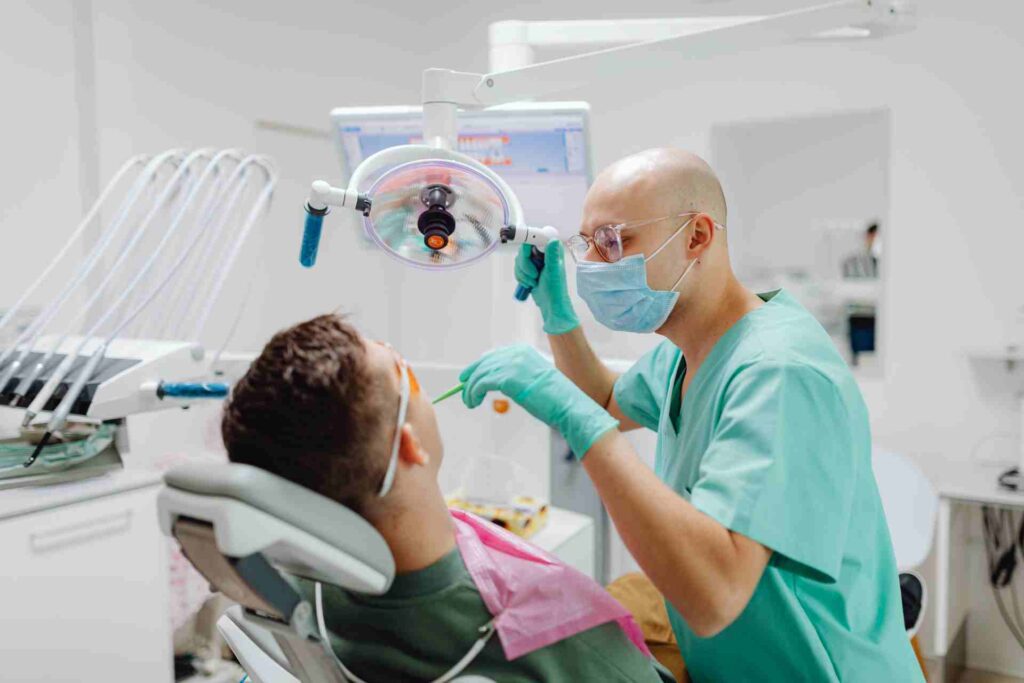Mouth sores: we’ve all experienced them at some point, and we all know how bothersome they can be. These small (often painful) lesions can pop up on the inside of our cheeks, lips, or even the base of our gums.

Whether it’s from accidentally biting our tongue or from a spicier meal than we bargained for, the reasons behind these pesky intruders can vary. Below is information that delves into the types of mouth sores and what might cause them, along with tips and solutions to soothe and prevent them.
Types of Mouth Sores
Mouth sores come in different shapes and sizes, and not all are created equal. Let’s break them down:
Canker Sores: These are small, white or yellowish ulcers with a red border, usually found inside the mouth—on the inner lips, cheeks, or even under the tongue. Unlike other sores, they aren’t contagious but can be quite painful.
Cold Sores: Often confused with canker sores, cold sores are caused by the herpes simplex virus. They appear as fluid-filled blisters, usually outside the mouth, around the lips. These can be contagious and tend to recur.
Other types: Sometimes, our mouth might have sores due to accidental bites, braces causing irritation, or even burns from hot food. These sores usually heal on their own and are less of a concern unless they persist.

Recognizing the type of sore is the first step in addressing it and finding relief.
Common Causes of Mouth Sores
Understanding the root cause of a mouth sore can make a world of difference in how you approach treatment. Here are some frequent culprits:
Viral Infections: The herpes simplex virus, responsible for cold sores (or fever blisters), is one of the most well-known viral causes of mouth sores. These sores typically appear outside the mouth, around the lips, but can also appear inside. Once infected, the virus remains dormant in the body and can reactivate, causing recurrent outbreaks. Another type of herpes virus, known as herpes zoster, can cause shingles and might lead to mouth sores in some cases. While treatment can help manage outbreaks, there’s currently no cure for herpes.
Injury: It’s easy to accidentally bite the inside of our cheek or tongue, especially while talking or eating. Similarly, dental work, braces, or a vigorous brushing session can sometimes lead to small injuries in the mouth, resulting in sores.
Acidic and spicy foods: Ever had a slice of pineapple and felt a sting in your mouth afterwards? Some foods, particularly those that are acidic or spicy, can cause or exacerbate mouth sores.
Vitamin deficiencies: Lack of essential nutrients, especially B vitamins, can be a sneaky cause behind those irritating ulcers.
Hormonal changes: Fluctuations in hormones, often experienced during menstrual cycles, can trigger mouth sores in some individuals.
Certain diseases or conditions: Conditions like celiac disease, Crohn’s disease, or a compromised immune system can lead to recurring mouth sores.
Awareness of these causes can aid in both treatment and prevention.
Natural Remedies
When mouth sores make an unwelcome appearance, many of us immediately search our homes for quick relief. Fortunately, several natural remedies can offer solace:

Saltwater rinse: A simple mixture of salt in warm water can work wonders. Gargling or swishing it around the mouth can reduce inflammation and pain. The salt helps in drawing out fluids from the sores and speeds up healing.
Baking soda: A baking soda rinse (made by mixing it with water) can help neutralize the acidity in the mouth, providing relief from burning sensations. It also has anti-inflammatory properties that can aid in reducing the size and pain of the sores.
Aloe vera: Known for its soothing properties, applying a bit of aloe vera gel to the sore can help in reducing pain and inflammation.
Honey: Its antibacterial and anti-inflammatory qualities can aid in the healing process. Apply a dab of raw honey to the sore a few times a day. It not only helps with healing but also acts as a natural pain reliever.
Other remedies: Other commonly suggested remedies include applying coconut oil, using licorice root, and drinking chamomile tea. While the efficacy can vary from person to person, they’re worth a try for their soothing potential.

Remember, while these remedies can offer temporary relief, it’s essential to address persistent or recurrent sores with medical guidance.
Over-the-Counter Solutions
When natural remedies don’t do the trick, or you’re looking for a quicker fix, there are several over-the-counter (OTC) solutions that might offer relief:
Mouth rinses: Some OTC mouthwashes are specifically designed to alleviate mouth sore pain. They often contain active ingredients that numb the area temporarily, helping to reduce pain and inflammation.
Topical products: Gels, patches, and ointments can be applied directly to the sore. These often contain ingredients like benzocaine, which can numb the area and provide temporary pain relief.
Pain relievers: OTC pain relievers like ibuprofen or acetaminophen can help reduce the pain and inflammation associated with mouth sores. However, always ensure you’re following the recommended dosage and consult the label for any contraindications.

While these solutions can be effective, it’s crucial to read and follow the product instructions carefully. And if your mouth sores persist or become more frequent, it’s always a good idea to seek medical advice.
When to See a Doctor
While many mouth sores are harmless and heal on their own, there are situations where professional medical intervention is necessary:
Persistence: If a sore sticks around for more than two weeks, it’s time to consult a healthcare professional.
Frequent recurrence: If you’re constantly battling mouth sores, it may indicate an underlying health condition or a compromised immune system.
Associated symptoms: Experiencing other symptoms like fever, swollen glands, or difficulty swallowing alongside your mouth sore can be cause for concern.
Suspected underlying medical conditions: If you have or suspect a condition like diabetes, HIV/AIDS, or cancer, always consult a doctor about mouth sores.

Remember, while self-care is valuable, it’s essential to know when to seek expert guidance.
Prevention Tips
Prevention is often the best cure. By adopting certain habits and precautions, you can reduce the risk of developing mouth sores:
Proper oral hygiene: Regular brushing, flossing, and using a mild mouthwash can keep your mouth clean and free from harmful bacteria.
Avoiding irritants: Minimize the intake of spicy, salty, or acidic foods if they tend to trigger sores for you.
Using protective measures: If you’re in cold or windy weather, using lip balm can prevent chapping and sores. Also, if braces or dentures irritate, speak with your dentist about potential solutions.
Reducing stress: Stress can be a contributing factor. Explore relaxation techniques or stress-reducing exercises to help keep mouth sores at bay.
Navigating the Nuances of Mouth Sores

Mouth sores, while often a mere nuisance, require our attention and care. By understanding their types, causes, and employing both natural and over-the-counter remedies, we can effectively address them. However, always keep an eye out for persistent issues and never hesitate to seek expert advice when in doubt. Here’s to a healthier, happier mouth!





















